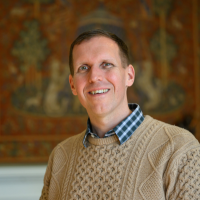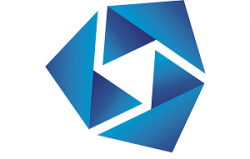Essentials of Effective Manuscript Preparation is a five-session series, led by two current scholars in engineering education research who have substantial publication and editorial roles, will prepare scholars to craft and submit engineering education manuscripts to peer-reviewed journal venues.

Type: Instructor-Led Course
Delivery Method: Live Online
Level: Foundational, Intermediate
Duration: 10 hours
Dates
October 3, 10, 17, 24, 31
12PM – 2PM, ET
** Additional half an hour “Office Hours” after each session
Pricing
ASEE Member: $750
Non-member: $850
Groups of 5+ receive 10% off
Email us to register a group!
Overview
This five-session series, led by two current scholars in engineering education research who have substantial publication and editorial roles, will prepare scholars to craft and submit engineering education manuscripts to peer-reviewed journal venues. The sessions will enhance understanding of strategies for manuscript design, preparation, authorship, and preparing for the peer review process.
Throughout the interactive series, the participants will gain an understanding of how successful manuscripts are developed, working through a genre-based perspective to understand how the different parts of a journal manuscript work together to form a meaningful contribution to scholarship. By understanding how the components work together, participants will understand how effectively crafting these elements can help manuscripts be reviewed more successfully. The course is also designed to help participants build healthy and sustainable writing habits.
This program takes place in five (5) two-hour long virtual interactive sessions, with an additional half-hour of “office hours” available after each session to be able to work on ideas under the guidance of the instructors. Small engagement activities will be built into the course content in order to facilitate progress on a current manuscript by participants. All sessions will be interactive; participants should be prepared to engage with each other and the instructors in order to learn through social interactions.
How you will benefit
- You will learn to write manuscripts as a strategic practice of telling the story of your research rather than a necessary chore of academic work.
- You will develop and practice effective habits of manuscript writing within the accountability of a scholarly community.
- You will gain individualized feedback on manuscripts, if desired, from course instructors and from fellow learners.
- You will develop effective tools to navigate the submission processes of academic journals in ways that strengthen your publishing opportunities.
Intended audience
This course is most optimally designed for those with a research manuscript that they are actively trying to complete. This manuscript could be an original submission or a substantial revision of a previously submitted manuscript. We will encourage learners to apply principles learned in the course to their active manuscripts.
Learning Outcomes
By the end of this program, participants will be able to
- Articulate quality expectations for journal articles in engineering education research venues
- Develop an effective “storyline” for their manuscript, and will be able to articulate the ways their work advances scholarship
- Craft compelling literature review and theory sections to set up theory-driven research questions for an engineering education journal venue
- Generate methodological narratives that demonstrate the credible trustworthiness of research findings.
- Communicate research findings in ways that tell an evidence-rich story that leads to key claims made in the manuscript.
- Effectively frame the value of the study to the engineering education community through convincing discussion and introduction sections
- Navigate peer review processes and typical editorial dialogues in engineering education venues
Session I: Telling an Effective Story in Educational Manuscripts
- Storyboarding a manuscript: How the different parts of a manuscript work together to tell a story
- Planning out your story and identifying the impact of your work
- Becoming effective at writing through disciplined, habitual practice
- Reasons to consider crafting sections “out of order” to facilitate story alignment
Session II: Designing a Literature Review in Alignment with Theory and Research Questions
- Crafting a strong literature review argument to enhance the storyline
- Building rhetorical alignment and positioning your work in the body of scholarship
- Writing meaningful research questions
- Engaging deliberately with theory in engineering education scholarship
Session III: Crafting Methods and Findings
- Telling a robust methodological story without detracting from the manuscript
- Using the methodological narrative to build credibility with the readers
- Positioning your role in the analysis in ways that align with the manuscript narrative
- Building your findings to communicate idiographic or nomothetic generalizability
Session IV: Framing the Story: Introduction and Discussion
- Framing manuscripts with central knowledge claims rather than chronological reports.
- Hooking the reader with engaging introduction sections
- Engaging in engineering education research to inform the theoretical arc of the manuscript’s narrative
- Offer constructive, research-informed implications for engineering education practice
Session V: Navigating Peer Review Dialogues
- Understanding submission processes as a scholarly dialogue rather than a checklist of compliance
- Becoming effective at conducting peer reviews, and applying those criteria to own work
- Knowing when to persist and when to move on when submitting a manuscript
- Developing strategies for engaging in effective dialogue with editors
 Catherine G.P. Berdanier
Catherine G.P. Berdanier
Assistant Professor, Mechanical Engineering,
Pennsylvania State University
Catherine G.P. Berdanier is an Assistant Professor of Mechanical Engineering at Pennsylvania State University and is the Director of the World Campus (online) Master of Science in Mechanical Engineering Program at Penn State. She directs the Engineering Cognitive Research Laboratory (ECRL) at Penn State in the Department of Mechanical Engineering, where her research interests include graduate-and postdoctoral-level engineering education; attrition and persistence mechanisms, metrics, policy, and amelioration; engineering writing and communication; cross-contextual design research; and methodological development for nontraditional data. Her work is funded through several NSF grants in the EEC and CMMI directorates, including RFE, IUSE, S-STEM, and CAREER. Her NSF CAREER award studies master’s-level departure from the engineering doctorate as a mechanism of attrition. Her work has been published across multiple venues in the engineering education and mechanical engineering research literature, including Journal of Engineering Education, International Journal of Engineering Education, and Journal of Mechanical Design. She is also an Associate Editor for Journal of Engineering Education. Catherine earned her B.S. in Chemistry from The University of South Dakota, her M.S. in Aeronautical and Astronautical Engineering from Purdue University, and Ph.D. in Engineering Education from Purdue University.

James Huff, Ph.D.
Associate Professor of Engineering Education,
Harding University
Dr. James Huff is an Associate Professor of Engineering Education at the University of Georgia. He earned his Ph.D. in engineering education research from Purdue University, his M.S. in electrical and computer engineering from Purdue, and his B.S. in computer engineering from Harding. Dr. Huff is a qualitative researcher whose work lies at the interdisciplinary nexus of engineering education research and applied personality and social psychology. An NSF CAREER Awardee, he is committed to fostering care as a central mindset of engineering and other professions through his in-depth examinations of personal lived experiences of identity and emotion, facets often hidden within professional domains. As Principal Investigator of the Beyond Professional Identity lab, Dr. Huff has mentored undergraduates, doctoral students, and professionals from fifteen disciplines in conducting their qualitative investigations on psychological phenomena relevant to equity and well-being in workplaces and degree programs.
Requirements and Resources
Pre-Work: TBD
Supplemental Resources: You will be provided with (1) a participant guide, (2) presentation slides, and (3) workshop slides.
Attendance and Completion
Full and active participation will enhance the learning experience for all participants. At the end of the workshop, you will receive a certificate of completion via email. Professional development hours (PDH) will be provided upon request.
Terms and Policies
• Cancellation Policy
• Recording and Privacy Policy
If you have questions, please contact learning@asee.org.

